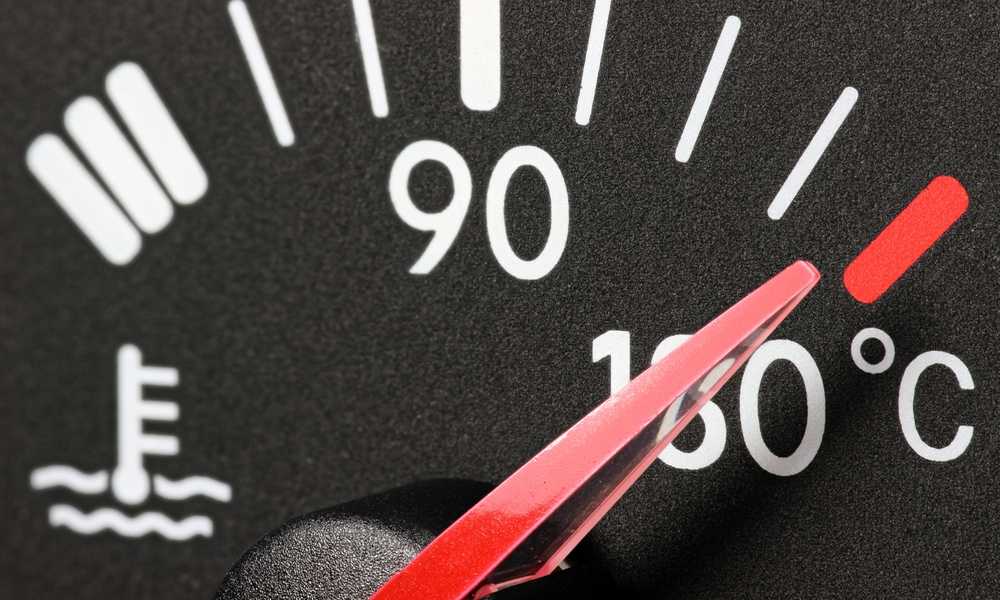Have you ever been driving along, minding your own business, when suddenly your car’s dashboard lights up with a warning that says “engine hot AC off”? It can be alarming and confusing, especially if you’re not sure what it means or what to do next. Don’t worry – in this blog post, we’ll dive into everything you need to know about why does my car say engine hot AC off, including the causes behind it, how much it might cost to fix, and whether or not it’s safe to continue driving. So buckle up and let’s get started!
Tell me the cause of an engine’s hot AC off light?
There are a number of reasons why your car might be displaying the “engine hot AC off” warning. One common cause is an issue with your car’s cooling system – if there’s a leak, blockage, or malfunction in this system, it can lead to overheating and trigger the warning light. Another possibility is that your car’s air conditioning compressor has failed or become damaged, which can also result in the AC being automatically turned off when the engine gets too hot.
In some cases, problems with other parts of your car – such as a faulty thermostat or water pump – may also contribute to an overheated engine and trigger the warning light. In addition, extreme weather conditions like high temperatures or humidity levels can place additional strain on your engine and cause it to overheat more easily.
There are many different factors that could be contributing to your “engine hot AC off” warning light. If you’re not sure what’s causing the problem in your specific case, it may be best to take your car into a mechanic for further diagnosis and repair.
What should I do if I get the engine hot AC off?
If you get the engine hot AC off warning, the first thing to do is to turn off the air conditioning and park your car in a safe location. This warning means that your engine has overheated or is close to overheating, and continuing to drive could cause severe damage.
Next, check your coolant levels. Low coolant levels are one of the most common causes of engine overheating. If you see that your coolant level is low, top it up with water or antifreeze as needed.
Check for any leaks in your cooling system as well. Leaks can cause a loss of pressure in the system which can lead to overheating.
You should also check if there are any visible signs of damage like broken belts or hoses that may have caused this problem.
Wait for at least 30 minutes for the engine to cool down before attempting any further action. Once cooled down, start your car and monitor its temperature gauge closely while driving slowly towards an auto-repair shop nearby so they can diagnose and fix the issue properly.
Remember, ignoring this warning light can result in costly repairs and even pose risks to yourself on road safety so always take necessary actions when faced with such problems!
Why does my car say engine hot AC off? : Mean
The dreaded “engine hot AC turned off” message can be alarming for any driver. This warning means that the car’s engine temperature has reached a dangerous level, and as a result, the air conditioning system is automatically turned off to prevent further damage.
When the engine overheats, it can cause serious problems such as blown head gaskets or warped cylinder heads. These issues are expensive to repair and can even lead to complete engine failure if not addressed promptly.
If you see this warning light on your dashboard, it is recommended that you pull over immediately in a safe area and turn off your vehicle. Allow it to cool down completely before attempting to drive again.
Remember that this issue could be caused by many factors, including low coolant levels, faulty radiator fans or thermostat failures. Therefore, it’s crucial to take your car into an experienced mechanic who will diagnose and fix the underlying issue properly.
Ignoring this problem may lead to more significant issues with your vehicle in the long run- so don’t hesitate!
What does AC off due to high engine temperature mean?
When you see the “AC off due to high engine temperature” message on your car’s dashboard, it means that the engine has become too hot and needs to cool down. This is a safety feature in modern vehicles designed to protect the engine from overheating, which can lead to serious damages.
The AC system uses heat from the engine coolant to cool down the air before it enters your car’s cabin. If there is not enough coolant flowing through the system or if the coolant itself is too hot, then turning on the AC will only add more heat into an already overheated engine. As a result, your car’s computer automatically turns off the AC compressor until things cool down.
If you continue driving with this warning message displayed on your dashboard, you risk causing severe damage to your vehicle’s engine. Therefore, it is best practice for drivers to immediately pull over when they see this warning and allow their vehicle time to cool down before continuing their journey.
How much does it cost to fix engine hot AC off light?

If you’re experiencing the engine hot AC off light in your car, you may be wondering about the potential costs of repairing this issue. The cost to fix this problem can vary greatly depending on the root cause of the issue.
In some cases, a simple fix such as replacing a blown fuse or fixing a faulty sensor could solve the problem and cost under $100. However, if there is an underlying issue with your vehicle’s cooling system or compressor, repairs could end up costing upwards of $1,000.
It’s important to have your vehicle diagnosed by a professional mechanic to determine the exact cause of the engine hot AC off light before attempting any repairs. This will help ensure that you avoid wasting money on unnecessary fixes and address any potential safety concerns related to overheating engines.
Remember that regular maintenance and inspections of your vehicle can help prevent issues like engine overheating from occurring in the first place. Taking preventative measures can ultimately save you money in repair costs down the line.
Can i drive my car if it says engine hot ac off?
If you see the message “engine hot AC off” on your car, it’s best not to drive it. This warning means that your engine is overheating and that the air conditioning system has been turned off to prevent further damage. Driving a car with an overheated engine can cause serious problems such as engine failure or even fire.
Overheating usually occurs when there is insufficient coolant in the radiator, or if there are leaks in the cooling system. Other reasons for overheating include a malfunctioning thermostat, a broken water pump, or a damaged radiator fan.
If you’re stuck on the road and have no option but to drive your vehicle with this warning light showing up, turn off any unnecessary electrical loads like radio and lights so they don’t put any extra strain on your alternator. Also turn your heater onto its highest setting as this will help transfer some of the heat away from the engine.
Ultimately though, if you ever see this warning light appear while driving – pull over safely and immediately shut down your vehicle until it cools down before attempting to diagnose or fix anything yourself!
Why is my Impala AC not working?

One of the common reasons why your Impala’s AC is not working could be due to a refrigerant leak. A low level of refrigerant can cause the system to malfunction, and it won’t produce cold air. Another reason may be a faulty compressor that needs replacement or repair.
Additionally, any damage or blockage in the condenser or evaporator coil can also lead to an impaired performance of your car’s AC system. Dirty air filters and clogged vents are other culprits that reduce the efficiency of an AC unit.
Moreover, electrical problems such as blown fuses, damaged wiring or failure of sensors can contribute towards non-functional Impala ACs. In some cases, if there are issues with pressure switches within the system, then it might stop functioning altogether.
Therefore, if you encounter any issues related to your Impala’s Air Conditioning System being dysfunctional contact a professional technician at once!
What does engine hot AC off on chevy Impala mean?
If you own a Chevy Impala and have ever seen the “engine hot AC off” message on your dashboard, it may be an indication that your car’s engine is overheating. This warning light turns on when the temperature of the engine exceeds its normal operating range, causing the air conditioning system to shut down automatically.
One potential cause for this issue could be a malfunctioning thermostat or coolant system in your car. If there are any leaks in these systems or if they aren’t working properly, then it can cause your vehicle’s engine to overheat and trigger this warning.
Another possible reason for seeing this alert message could be due to low coolant levels in your car’s radiator. A low level of coolant means that there isn’t enough fluid to keep the engine cool while running with both AC and other systems functioning at full capacity.
It is always important to address such issues immediately by taking your vehicle into a professional mechanic who can diagnose and repair any underlying problems that might be causing these alerts. Failing to do so may lead to more severe damage or even total failure of critical components within your car’s cooling system.
Engine hot ac off but not overheating
One common issue among car owners is when the engine hot AC off light turns on, but the engine temperature gauge reads normal. This can be confusing and frustrating for drivers who want to use their air conditioning while driving.
There are several reasons why this may happen. One possibility is that there could be a faulty sensor or wiring issues causing incorrect readings in the system. Another possibility could be a malfunctioning AC compressor or cooling fan, which prevents the air conditioning from working properly.
It’s important to address this issue as soon as possible by taking your vehicle to a trusted mechanic for diagnostic testing and repairs if necessary. Continuing to drive with an unresolved issue could lead to further damage and potentially more expensive repairs down the line.
In some cases, simply replacing a faulty sensor or repairing damaged wiring may solve the problem. However, depending on what’s causing the issue with your car’s AC system, it might require more extensive repairs that come at a higher cost.
How can I prevent my car from overheating?
Preventing your car from overheating is essential to keep it running smoothly. Here are some tips that can help you avoid this problem:
1) Regular maintenance: Ensure that your car receives regular check-ups and tune-ups, including checking the coolant level.
2) Check the coolant system: If there is a leak or low fluid levels in the coolant system, it can cause an engine to overheat. Always ensure that the radiator cap is properly tightened and not damaged.
3) Keep an eye on temperature gauge: Always be mindful of your vehicle’s dashboard temperature gauge to detect if any issues arise quickly.
4) Don’t ignore warning signs: If you notice any warning lights illuminated on the dashboard or hear strange noises coming from under the hood, don’t ignore them. Get them checked out immediately by a professional mechanic.
5) Avoid extreme temperatures: Park your car in shaded areas during hot weather conditions; use sunshades for windows when parked outside for longer periods of time during sunny days
By following these simple steps, you can effectively prevent overheating in your vehicle and maintain its longevity!
Why does my engine run hot when the AC is on?
It is not uncommon for a car’s engine to run hot when the AC is on. This can be due to a variety of reasons, ranging from low coolant levels to a malfunctioning fan.
One possible cause could be that the engine’s cooling system is not strong enough to handle the added heat generated by the AC compressor. This can result in an increase in temperature and put extra strain on other components of your car.
Another potential reason could be that there is a blockage or leak somewhere within your car’s cooling system. These issues can prevent proper circulation of coolant through the engine, causing it to overheat.
In some cases, this issue may also be caused by a faulty thermostat or water pump. The thermostat regulates coolant flow while the water pump circulates it around your engine – if either one fails, this can lead to overheating problems.
To address this issue, it’s best to take your vehicle into an experienced mechanic who has knowledge about automotive air conditioning systems and cooling systems. They will help diagnose what exactly is wrong with your vehicle so you don’t have any further complications down the road.
Engine hot ac off but temp gauge reads cold

One possible reason why your car may be showing the “engine hot ac off” warning but the temperature gauge reads cold is a malfunctioning engine coolant sensor. This sensor is responsible for monitoring the temperature of your car’s engine and sending signals to the onboard computer system to regulate various functions such as the air conditioning.
If this sensor fails or gives inaccurate readings, it can cause incorrect signals to be sent to your car’s computer, resulting in the “engine hot ac off” warning even when the actual temperature of your engine is not high. In some cases, this problem can also lead to poor fuel economy and decreased performance.
To diagnose this issue, you may need to have a professional mechanic perform an inspection and run diagnostic tests on your vehicle’s cooling system. They will then determine if any repairs or replacements are necessary.
It is important not to ignore this issue as running with an improperly functioning cooling system can harm other parts of your vehicle and potentially lead to more expensive repairs down the line.
Final thoughts
Seeing the engine hot AC off light can be alarming for any driver. However, it is crucial to remember that this warning sign indicates a safety feature in your car designed to prevent damage or accidents. The reasons behind the engine hot AC off warning can vary from minor issues like low coolant levels to major problems like a malfunctioning thermostat or water pump.
If you encounter this issue, it’s best not to ignore it and take immediate action by pulling over and letting your car cool down. Check the coolant level and look for any leaks before deciding whether you need professional help.
Regular maintenance of your vehicle is key to preventing overheating-related issues. Ensure that you get routine check-ups on belts, hoses, radiators, fans, and other components related to cooling systems.
By following these steps and staying proactive about keeping your car in good condition, you can avoid sudden breakdowns while driving. Remember that addressing minor problems early on can save significant costs later on when they turn into bigger concerns.
We hope this article has provided valuable insights into why cars say “engine hot ac off” and how drivers should handle such situations with care. Stay safe on the road!



